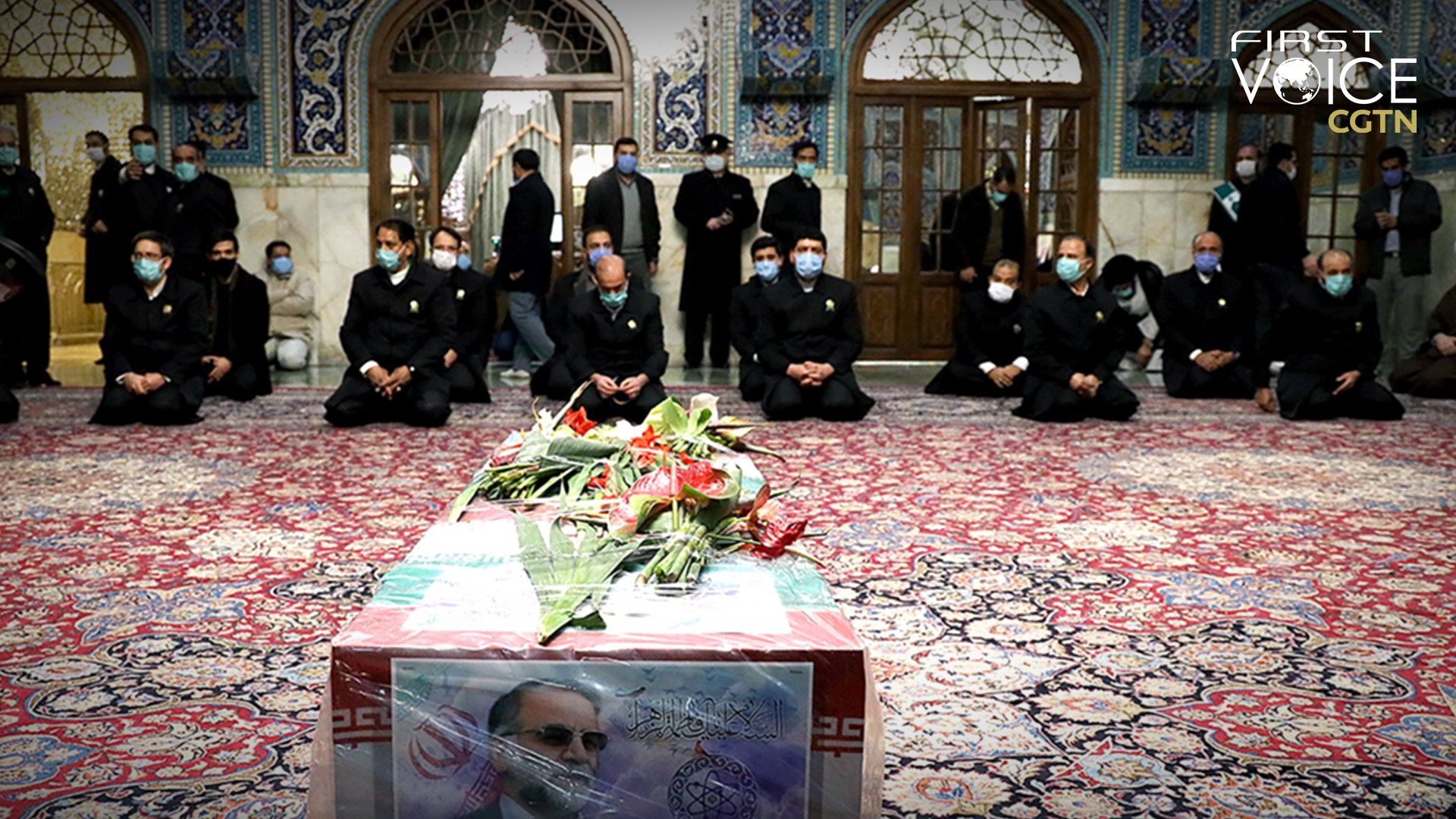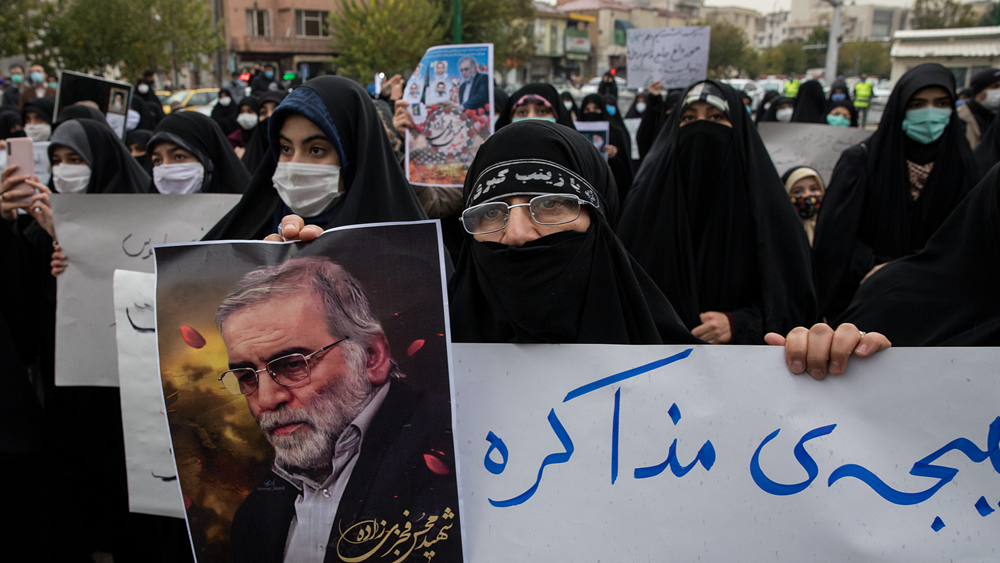
A coffin with an image of Iranian nuclear scientist Mohsen Fakhrizadeh sits among the servants of the holy shrine of Imam Reza in Mashhad, Iran, November 29, 2020. /Reuters
A coffin with an image of Iranian nuclear scientist Mohsen Fakhrizadeh sits among the servants of the holy shrine of Imam Reza in Mashhad, Iran, November 29, 2020. /Reuters
Editor's note: CGTN's First Voice provides instant commentary on breaking stories. The daily column clarifies emerging issues and better defines the news agenda, offering a Chinese perspective on the latest global events.
Anti-Iran hawks touted the assassination of the country's chief nuclear scientist as an attempt to impede Tehran's war potential and the leverage to bring it back to a "normal state." But in reality, the killing of Mohsen Fakhrizadeh is not only a dangerous move that risks escalating tensions in the Middle East, but also a blatant act of sabotage against diplomacy.
The murder, which the Iranian government has blamed on its arch-foe Israel, comes within less than a year after its most powerful military commander Qasem Soleimani was killed in January. Although Tehran vowed to retaliate against the U.S. that is believed to be the big boss behind the assassinations, Iranian leaders have been acting consciously in the past few months.
The Iranian government has realistic calculations. To begin with, compared with the need to revenge, regime survival apparently carries much more weight for the Iranian leadership. Any provocation against Washington is highly likely to be used as a pretense for the Donald Trump administration to invade Tehran. A real war with the U.S. is not what Iran could afford.
In addition, the international sanctions since the beginning of the century had dragged the Iranian economy into a deep recession. Although the economy bounced back following the signing of the Joint Comprehensive Plan of Action (JCPOA) in 2015, the re-imposition of the U.S. sanction in 2018 has again hit hard on the country's export.
Hoping to have sanctions lifted, Iranian leadership, despite its anger at Soleimani's assassination, has been exerting restraints on the United States. Tehran does not want war. But the combined losses of Soleimani and Fakhrizadeh are, beyond question, a huge humiliation on the Iranian government. Some Iranian hardliners have already called for strikes against Israel. If this becomes a reality, the U.S. stands a good chance to play a part in the conflicts. This would drag the already febrile region further into turmoil.

Iranian students protest against the killing of top nuclear scientist Mohsen Fakhrizadeh in Tehran, November 28, 2020. /CFP
Iranian students protest against the killing of top nuclear scientist Mohsen Fakhrizadeh in Tehran, November 28, 2020. /CFP
Apart from escalated tensions in the Middle East, the assassination is sabotaging democracy. It is worth noting that, unlike Trump, U.S. president-elect Joe Biden has signaled his intention to re-join the JCPOA. But this is not what Israel and Trump are happy to see. Earlier, Israeli Prime Minister Benjamin Netanyahu made clear that there should be no return to the nuclear deal that Trump abandoned. The timing of the assassination is thus seen by many as a message to Biden.
Democracy, or in other ways, the JCPOA's resumption, is the only feasible way out of the nuclear conundrum. Trump's withdrawal from the deal does no good in alleviating regional tensions, and Fakhrizadeh's death is making it even more difficult for Washington and Tehran to go back to the negotiating table. Although Trump is left with only several weeks in office, this does not mean the incumbent president could do nothing to impede democracy.
How the future U.S. president would react to the deal depends largely on the Iranian government's response to the assassination. Whoever is in Oval Office, Tehran's returning to the nuclear limits in 2015 is the prerequisite to Washington's dropped sanctions.
But after the combined assassinations of Soleimani and Fakhrizadeh, voices calling for more nuclear weapons have become increasingly louder in Iran. If Iranian hardliners insist on uranium enrichment, this will undercut Biden's intention to offer Tehran "a credible path back to diplomacy". After all, despite Biden's willingness to revive the deal, Iran's adherence to the 2015 arrangement is always the No.1 rule for the U.S. to re-participate.
The assassination is widely criticized as an act of terrorism. But it is more a calculated move to block the JCPOA's resumption than a random attack against Iran. This is a meticulously designed trap for Tehran. All concerning parties may think twice before any reaction.
Scriptwriter: Liu Jianxi
(If you want to contribute and have specific expertise, please contact us at opinions@cgtn.com.)

